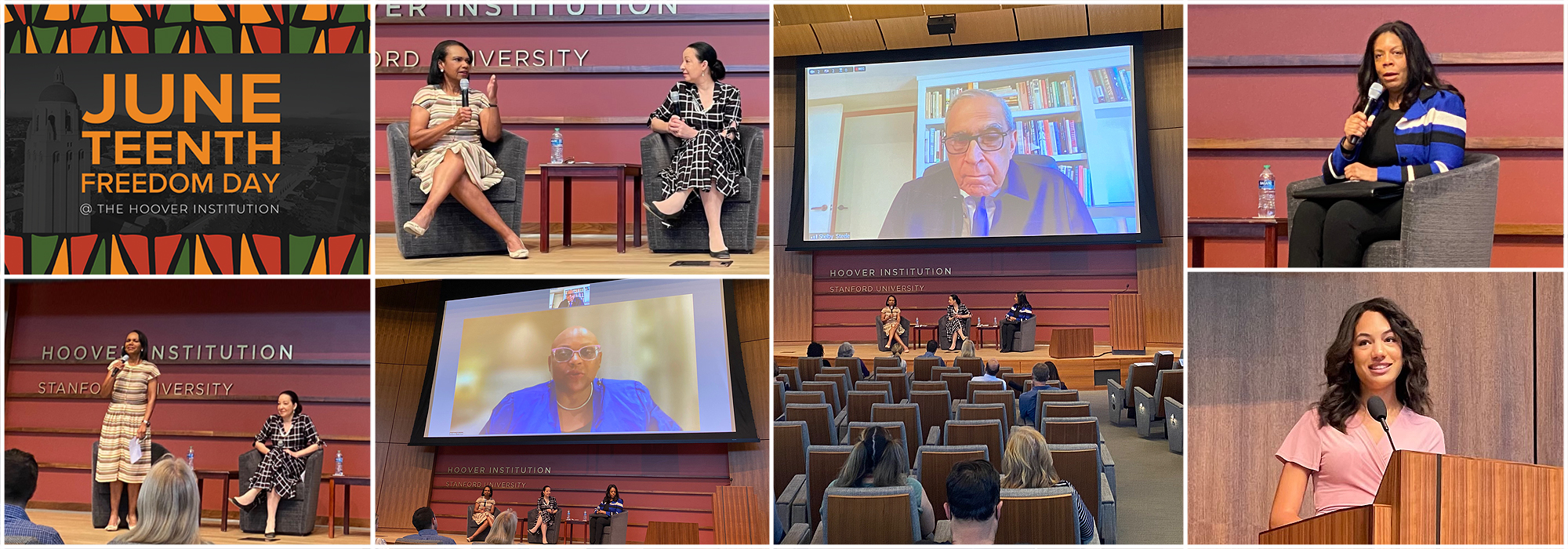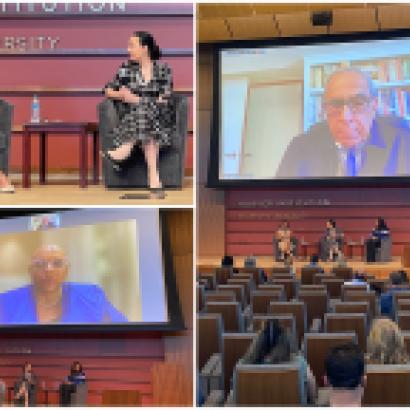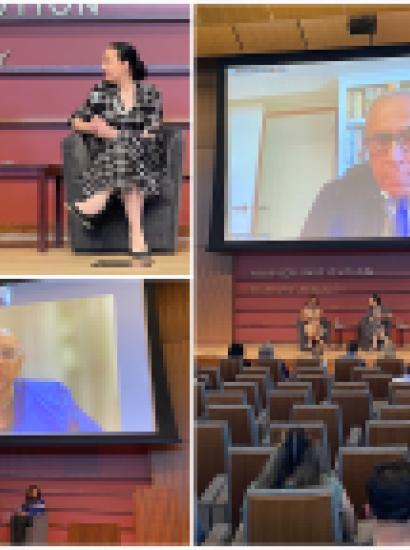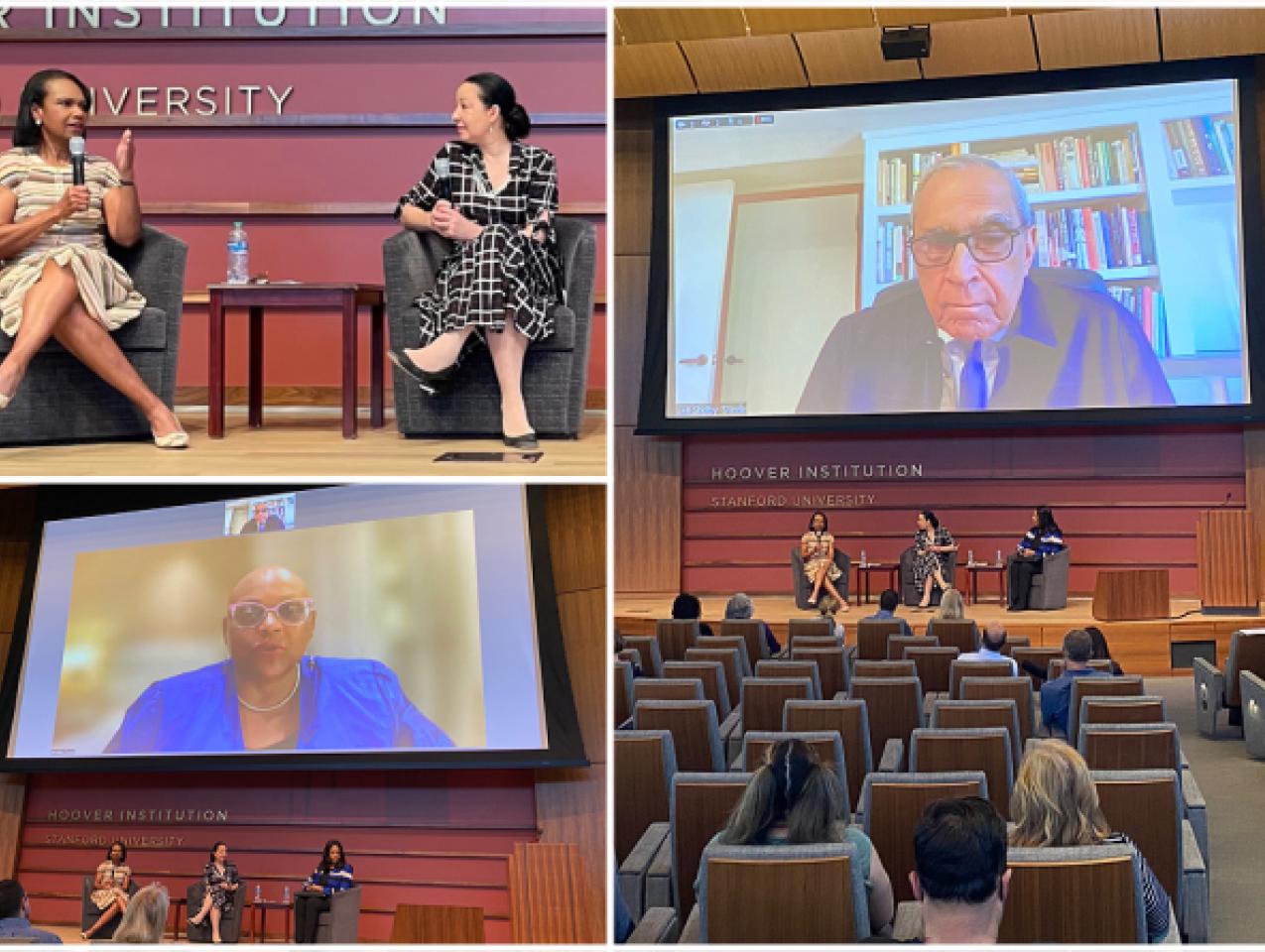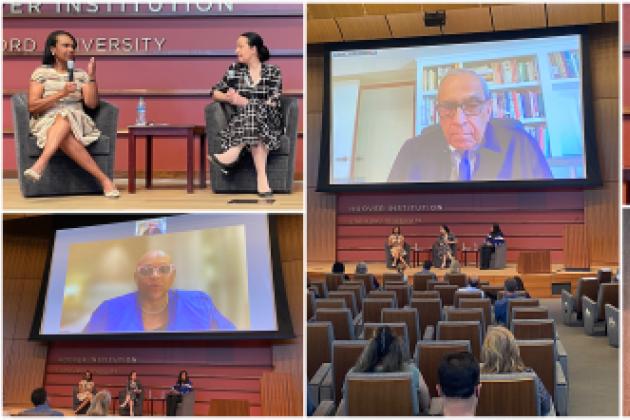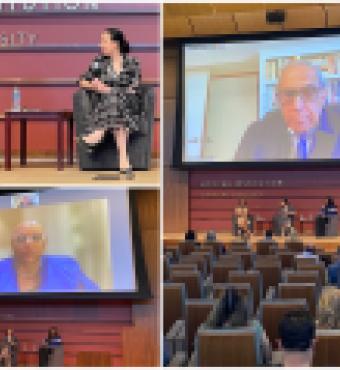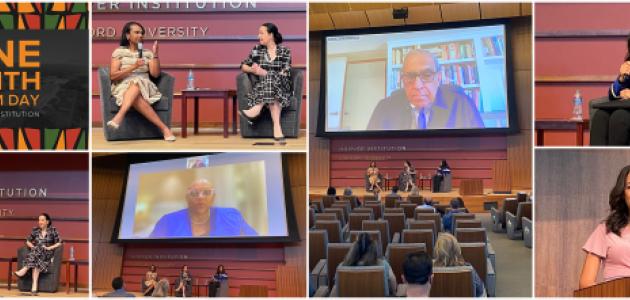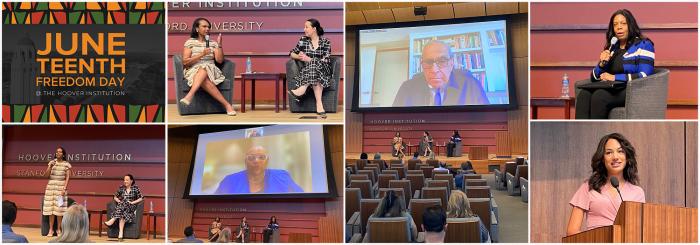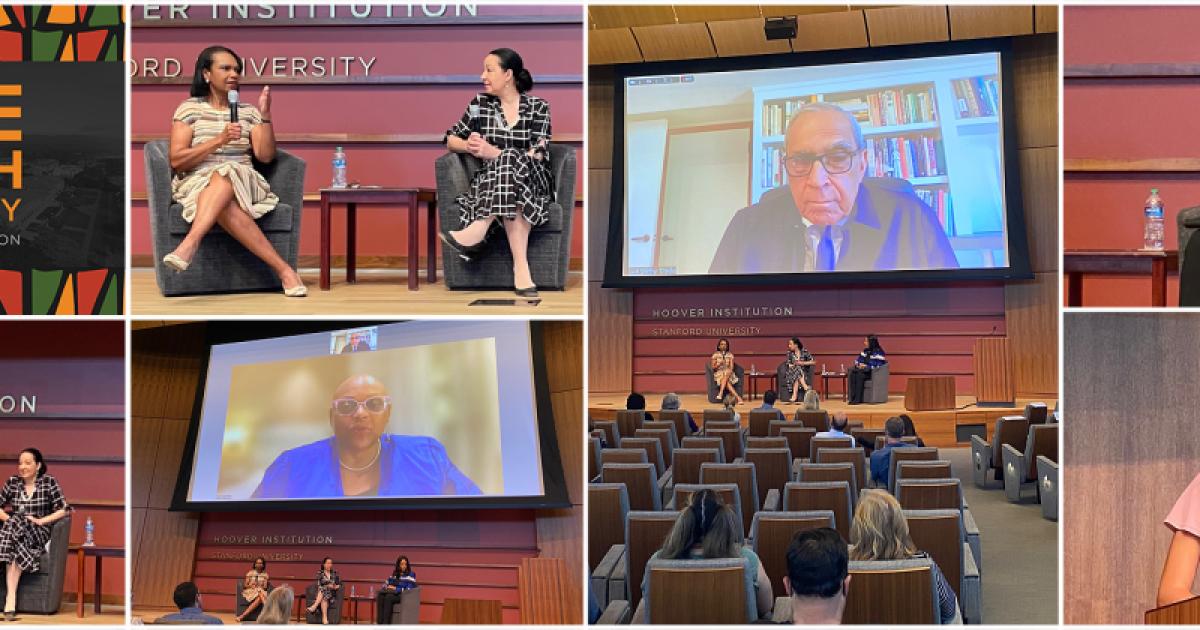
Hoover Institution (Stanford, CA) – Hoover fellows described African Americans’ struggle for freedom and equality during a panel discussion hosted in advance of Juneteenth Freedom Day (June 19), a newly recognized national federal holiday commemorating the emancipation of African Americans from slavery in 1865.
The panel featured remarks from Tad and Dianne Taube Director Condoleezza Rice; Senior Fellow Caroline Hoxby; and Robert J. and Marion E. Senior Fellow Shelby Steele. W. Glenn Campbell Research Fellow Kiron Skinner moderated the conversation, and Duignan Distinguished Visiting Fellow Jendayi Frazer provided concluding remarks.
The commemoration also featured a special display curated by Hoover Library & Archives, exhibiting a selection of documents and visual materials that tell the story of the Black experience in America. Among them were a newly acquired and rare photograph album of Black women who served in the Women’s Auxiliary Corps during World War II and a poster designed by artist Billy Morrow Jackson that portrays the four young girls killed in the Birmingham church bombing in 1963.
Living History
The conversation began with each of the participants describing their own family’s background and intersections with the arc of Black history in America.
Hoxby explained that one of her family pictures illustrates the course of racial progress that has been made since Blacks were officially emancipated in 1865. In the photo is her great-great grandmother, who had been born into slavery in Georgia. Also depicted is her grandmother, who was the daughter of a housekeeper for Kent State University and who, having been surrounded by books as a child, was raised to be an avid reader; her father, who was the under secretary of education during the Carter administration; and her older sister, who is now a vice provost at Princeton University.
“It’s just a story of America and how Black people have really been able to improve themselves,” Hoxby said.
Rice relayed a similar story of her great-grandmother Julia, who unlike most other African Americans before emancipation, had access to an education, since she was also the daughter of a White slave owner. Julia passed a love of learning to her son John Wesley Rice, who would go on to receive a one-year scholarship to attend Stillman College, a Presbyterian school located in Tuscaloosa, Alabama. When John Wesley asked Stillman’s leadership how he could pay for the remainder of his education, they told him that he would have to study to become a Presbyterian minister.
“That then put our entire family on a road to education,” Rice said, describing the critical role of education in helping Blacks emerge out of slavery and overcome socioeconomic inequalities.
Steele was born to an African American father with a third-grade education. Meanwhile, his White mother was a social worker, who held advanced degrees. Both parents were deeply committed to the civil rights cause in the 1960s and met while working for the Congress of Racial Equality (CORE).
“I was a CORE baby, I got a chance to be in that movement and see how it worked,” said Steele, whose research interests focus on the Black experience in America and the impact of contemporary social programs, adding, “It’s what interests me and what still interests me.”
The Struggle for Freedom
Rice said that Juneteenth commemorates a second founding of the United States. But even after emancipation, she explained, Blacks still couldn’t fully enjoy liberty in the South and other parts of the United States until the civil rights movement was able to dismantle a culture of segregation.
Having grown up in Birmingham, Alabama, during the 1960s, Rice sees the civil rights movement as very personal to her and her family. Rice witnessed the shock and sadness in her community after the bombing of the 16th Street Baptist Church killed four young girls, including her classmate, Denise McNair.
Rice explained that the civil rights movement still was able to make use of America’s longstanding democratic principles and institutions to advance the cause, imperfect as the framers of these institutions were.
Civil rights figures including Rosa Parks, Martin Luther King Jr., and others practiced their rights of freedom of speech and assembly during protests such as the Montgomery Bus Boycott of 1955–56. They brought their cases to the judicial system, as demonstrated by civil rights attorney Thurgood Marshall’s string of nearly thirty Supreme Court victories, including the breakthrough Brown v. Board of Education in 1954, which ended de jure segregation in public schools. This momentum culminated in the passage of the landmark Civil Rights Act of 1964, which prohibited segregation in public places and biases in hiring practices on the basis of race, color, sex, religion, or national origin; and in the Voting Rights Act of 1965, which forbade racial discrimination in election procedures and practices.
“In our history, I can talk to you about democracy not as a final destination point but as a journey that you look toward,” Rice said. “You have to keep [laying] a brick day by day . . . overcoming and working to deal with your past.”
Steele criticized the concept of the Juneteenth holiday, arguing that it is pulling African Americans into a mentality that reduces their ability to assert their free will. He said that Blacks, instead of again being victimized by the memory of slavery and feeling the need to be saved from their modern-day oppressors, should shift their focus to bearing the responsibilities that come with freedom. He maintained that Juneteenth doesn’t address serious problems within Black communities, many of which they need to solve themselves, including student achievement gaps, broken families, and high rates of illegitimacy.
“It seems to me that there might be some events in history that would capture the spirit of Black America in which we insisted on overcoming and we strived to achieve,” Steele said.
Steele would prefer Black communities adopt a spirit such as that held by one his favorite characters in African American history, Nat Turner, who led an August 1831 rebellion of slaves in Virginia and was ready to die if he wasn’t able to exercise his full freedom. Until Blacks adopt that attitude, Steele maintained, they will never be able to achieve full equality.
Skinner agreed with Steele that there are monumental socioeconomic challenges within Black communities, however she pointed to a narrative of their agency and successes. Skinner noted that today, one in fifty Blacks are millionaires and that African Americans, especially women, are now, more than at any other point in the post–civil rights era, pursuing advanced degrees in education. To illustrate a desire for agency within Black communities, Hoxby recalled an experience conducting field work in Chicago charter schools, where parents clamored to get their children admitted despite a limited number of seats. The parents witnessed the success of pupils who attended charter schools and believed that they presented the best option for their children to receive a quality education and in turn achieve success in life.
The program concluded with a prerecorded message from Jendayi Frazer, who held that emancipation of African Americans continues to inspire people around the world fighting for freedom and democracy today, most notably Ukrainians defending their nation against the tyranny of Russia.
“While we celebrate and enjoy the day, we also have to recommit ourselves to supporting that freedom of people in the world, their struggles for voice, [and] for human rights to be counted,” Frazier said.







